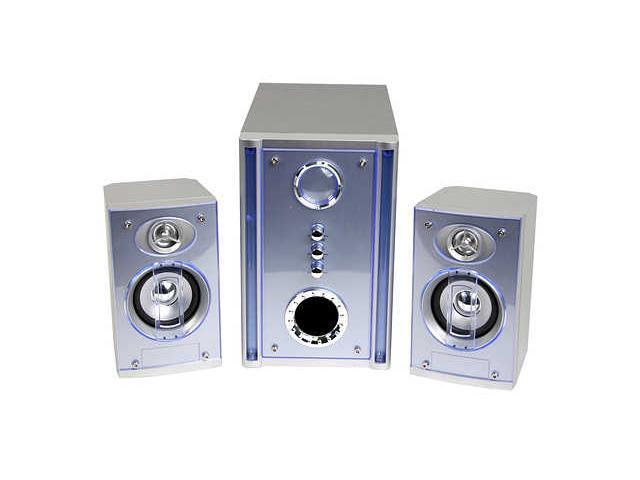Here are
some things that I can really say: "Yeah, that's me!" on:
For here is the central goal of the INTP: to understand and seek truth.
[...] a curious overriding desire to observe from a detached position, indicating the preference for intuitive perception with respect to external things. Since accurate analysis needs to avoid becoming hampered with details or being influenced by the actions of others, the INTP invariably seeks to withdraw, at least in spirit, from the situation being considered.
Where detachment ceases is when someone makes an illogical statement or violates one of the INTPs principles. At such a point, the INTP feels the instant drive to provide for clarity. This is his Mission; to be the provider of clarity. [...] Here, the INTP risks being seen as over-critical, aloof and arrogant. On the whole, however, real arrogance is rare for INTPs for their desire is not to dominate others but simply to observe, analyse and clarify. Once the point has been clarified, the INTP withdraws quickly, for he prefers not to be in the limelight unless absolutely necessary. Hence, for most of the time, INTPs are easy-going and will fit in to others' needs, taking up the role of observer again.
[...] it is common to see INTPs dabbling at many things, achieving competency, just enough to prove to themselves that they could become more proficient if they wished, but rarely actually bothering to refine their skills further.
The opinions of others are rarely given much weight in themselves. All opinions must get filtered through an analysis procedure to test for viability. No title or claim of being an "expert" carries any weight with an INTP. All people, big or small, are subject to an identical scrutiny. The INTP sees himself as the independent arbiter, whether a fair claim or not. However, when someone has proved his credentials through having sensible opinions, he will be afforded great respect by the INTP.
To know is everything, to do is a lower order necessity, if it is necessary at all. This breeds the potential for lazy aloofness. The INTP is often satisfied simply by knowing that he could do something if he wished. This also leads to the danger of overestimating one's capabilities and losing a grip on reality.
[...] the INTP takes his interests and beliefs very seriously. Honesty and directness when explaining these interests are usually displayed. INTPs detest facades and particulary dislike people who exhibit them. Equally, those kind of people also dislike INTPs and avoid them at all cost, for they know that the INTP will see right through them.
The INTP's serious nature also makes them almost immune to mockery and being made fun of, at least when face to face with their mocker. If someone attempts to make a sarcastic, mocking comment about an interest of an INTP, the latter will defend himself with a pure, almost naive seriousness, explaining his position with a severe exactness, wielding his words like swords. This almost always disarms the mocker who does not expect such a penetrating defence. The INTPs defence usually also contains a subtle but biting attack thrown back in the mocker's face, chiefly because the INTP cannot entirely hide the fact that he believes his opponent to be stupid.
This ability to wield words with cutting precision is one of the INTP's greatest assests, but equally one of his most deadly traits. He is capable of using words creatively to penetrate deep into the understanding of a subject, but if not checked and wielded carelessly, his words can become highly destructive.
An INTP will often make controversial, speculative points of argument, often annoying the discussion-partner, and make them in such a way as to leave the impression that he is very serious about what he says. In reality, the INTP is not actually even certain himself whether he really stands by what he is saying, but his Ne strongly suggests that there must be a core of truth there. The purpose then of his outspoken style of argument is to sharpen his own intuitive understanding by testing the reaction of the listener, and indeed to examine the logic of his own arguments in real time while speaking them out. On occasion, INTPs may seem brash and tactless, but for themselves it is part of their way of getting closer to the truth. This is another aspect of the Ne grappling with the external world (in this case discussion with another) to understand it.
Humour is another aspect which marks out the INTP. He can readily dream up jokes about almost any situation. Taking things out of context is the chief source of humour and many an INTP is a Monty Pythonite. The Ne is the engine and source of this joke-generator. Needless to say, the humour of an INTP can be pretty zany and warped and may not be understood easily by others. The problem is that the Ne concepts for jokes are put into a structure only by the Ti. Hence, the humour can become black and tactless, having felt little Feeling input.
If you see someone smirking and laughing at some private thought, without any obvious reason, he's probably an INTP.
--[This always happens to me. "What are you laughing about?"]
INTPs tend to be rather mistrusting of people and are rather sceptical.
INTPs dislike making the first move and tend to mirror the emotional content of the other person. A jolly person will quickly bring the INTP out of his shell, as much as that is possible, while a serious person will find a serious INTP looking back at him. In this sense, INTPs preference for intuitive perception (rather than action) with respect to people results in them resembling a chameleon. [...] the INTP remains somewhat reserved, never wholly identifying himself with his surroundings. As chameleons, INTPs are therefore approachable and open, unless the Ne tells the INTP that the other person is a type he doesn't like, in which case the reserved attitude may become too obvious.
INTPs have been groomed by other types into accomodating themselves into the social world, so that even amongst themselves a minimal level of social niceties will be given. Favourite topics of discussion are science and science-fiction, music, computers and any abstract concept with which one is currently fascinated by.
INTPs make very poor leaders, for they depend too much on the attitudes of others. This is one of the negative sides of the Ne function. INTPs tend to jump to intuitive conclusions, can be fatalistic and have little perseverence. On the other hand, they can make very good assistants to leaders, provided they and the leader are of one mind, for their perceptive analysis can give the leadership useful insights which they may overlook, being too busy with leading. Indeed, INTPs are often glad when someone else takes over the lead, again providing the leader is of the same mind. An INTPs ideal is to provide all the ideas for a project and have a charismatic leader, who agrees with him, carry them out.
INTPs have a very strong requirement to keep their external, social world as simple and as uncluttered as they can so that they can focus as much energy as possible on their internal world of system analysis and theoretizing. Hence, they tend to be amongst the least demanding and least complicated of all types when interacting with others
The INTP always tries to get a feel for the big picture, using his Ne, and habitually ignores all detail. Of course, objects of interest will be seen as a matter of course and he can choose to concentrate and focus on them, but it is remarkable how much he still overlooks.
When an INTP lives alone, his home is usually spartan and utility-oriented. There will be little or no decorative objects, electronic equipement will be in abundance and the importance of any object will depend only on its usefulness. The general style of the home is largely irrelevant. When an object is put aside, not to be returned to for a while, it will lie fully ignored until used again. Objects which lie unmoved for more than about 48 hours usually become invisible to the INTP, until such time as he has a use for them again. For other temperaments whose need for tidiness and order in a house is strong, this lack of concern in this area may seem despairing. For the INTP, however, no problem exists.
The INTP melancolic is typically drawn to wild polar expanses, to mountain ranges and all places on the edges of civilisation. Whatever his particular yearning might actually be, it has a common root. The homeland of the INTP's psyche is a small and cosy community, isolated in the middle of a vast expanse of wilderness.
Feelings and emotions are regarded with suspicion and perhaps fear by the INTP and he may be keen to avoid considering or showing them.
[...] his emotions, when visible, are pretty direct and easy to assess. Since the INTP normally wishes to hide his emotions; when they do come out, they do so in outbursts with an almost childlike innocence. There is a sense of all-or-nothing and, when visible, there is nothing enigmatic about the feelings of an INTP: indeed, shadow functions always seem pretty raw and basic.
For the INTP, emotions are seen as something mysterious and as uncontrollable as they are unalterable. Hence, the root of the fear of emotions is the fear that they cannot be controlled. Hence, when an INTP does finally respond emotionally to something, his emotions are indeed left uncontrolled, raw and open.
[...] lack of ability to show active empathy with people undergoing strong emotions. If he wishes to encourage the emotional person, the INTP tends to resort to giving T-based solutions to the problems involved. Often, the INTP does not really know how to empathize and may feel discomfort and helplessness, especially when he understands the rational basis for the emotions. He may become frustrated that the person remains unhappy in spite of hearing his T-based solutions. Much worse is when the emotional person appears to be being irrational. INTPs detest irrational emotion above all things.



 a new motherboard (I've used it before, and like it because it's got integrated video and a microATX form-factor), a new set of speakers (mine were blown, didn't even work, I threw them away weeks ago and have been using my headphones),
a new motherboard (I've used it before, and like it because it's got integrated video and a microATX form-factor), a new set of speakers (mine were blown, didn't even work, I threw them away weeks ago and have been using my headphones), and because I ordered the motherboard I qualified for a gift, and chose a watch (I've been wanting a watch that's thinner than my normal Timex Ironman watch). I was hoping they'd come in today, but it looks like I'll see them on Monday or Tuesday.
and because I ordered the motherboard I qualified for a gift, and chose a watch (I've been wanting a watch that's thinner than my normal Timex Ironman watch). I was hoping they'd come in today, but it looks like I'll see them on Monday or Tuesday.






